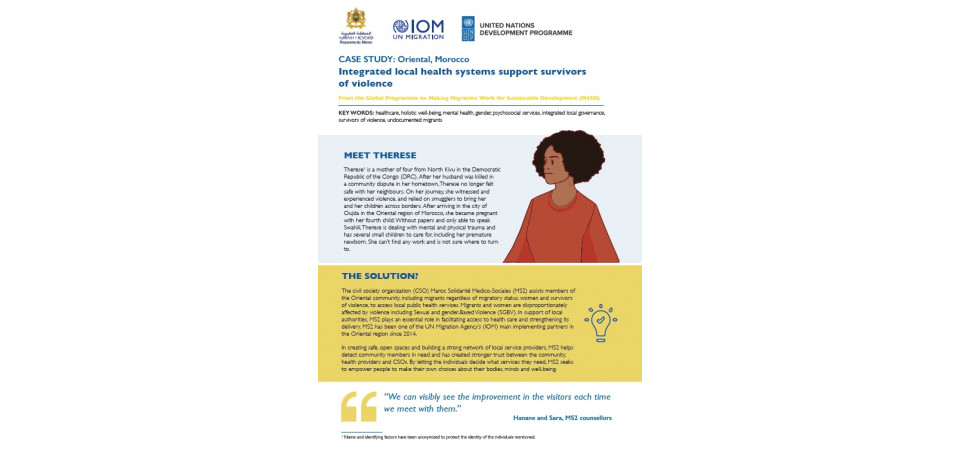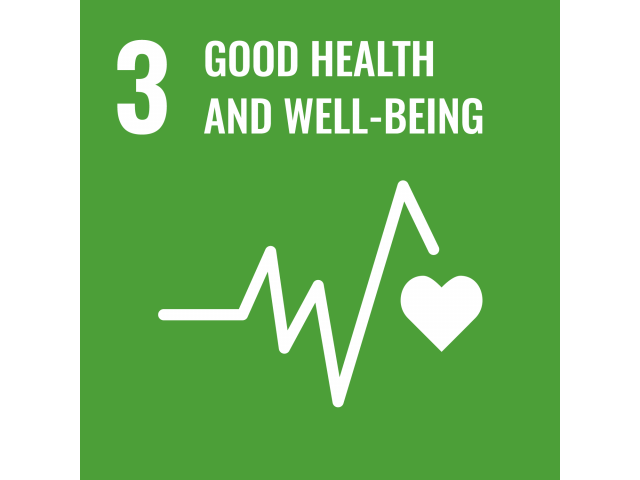CASE STUDY: Integrated Local Health Systems Support Survivors of Violence in Morocco
Related Sustainable Development Goals and Global Compact for Migration Objectives
Therese lives in the city of Oujda in the Oriental region of Morocco. A mother of four, she left her hometown after her husband was killed and experienced hardship and violence along her journey. But Therese wants a better future for her and her children.
Migrants and women are disproportionately affected by violence including Sexual and Gender-Based Violence (SGBV). How do local community organizations like Maroc Solidarité Medico-Sociales (MS2) create an environment in which Therese and fellow women, migrants and survivors of violence can heal? How does local health care support that leaves no one behind generate success for the wider local community? How does MS2 work together with local healthcare providers, the local government and international institutions to refer people like Therese to the services and organizations that can support her throughout her healing journey - from healthcare to housing to justice? How would another community set up something similar?
Read the new case study to find out how communities can develop inclusive health solutions. The case study gives 7 tips that we learned from putting this approach into practice, including: empowering survivors to lead their own communities toward health, guiding people towards local organizations that can provide further support for housing, justice, and more and establishing national and local health policies that ensure migrants are able to access health facilities. Practitioners can learn how to strengthen similar programmes to ensure that any community member who has experienced violence is fully supported.
These activities are carried out through the IOM-UNDP Global Joint Programme Making Migration Work for Sustainable Development (M4SD) which supports Moroccan civil society, national and local governments, the private sector and the diaspora to establish community-led solutions that empower migrants and displaced people and create inclusive opportunities for all. MS2 assists members of the Oriental community, including migrants regardless of migratory status, women and survivors of violence, to access local public health services. We seek to empower people to make their own choices about their bodies, minds and well-being. Good health and well-being for everyone is not only a necessary foundation for personal success but is also essential for communities to prosper (Sustainable Development Goal 3).

